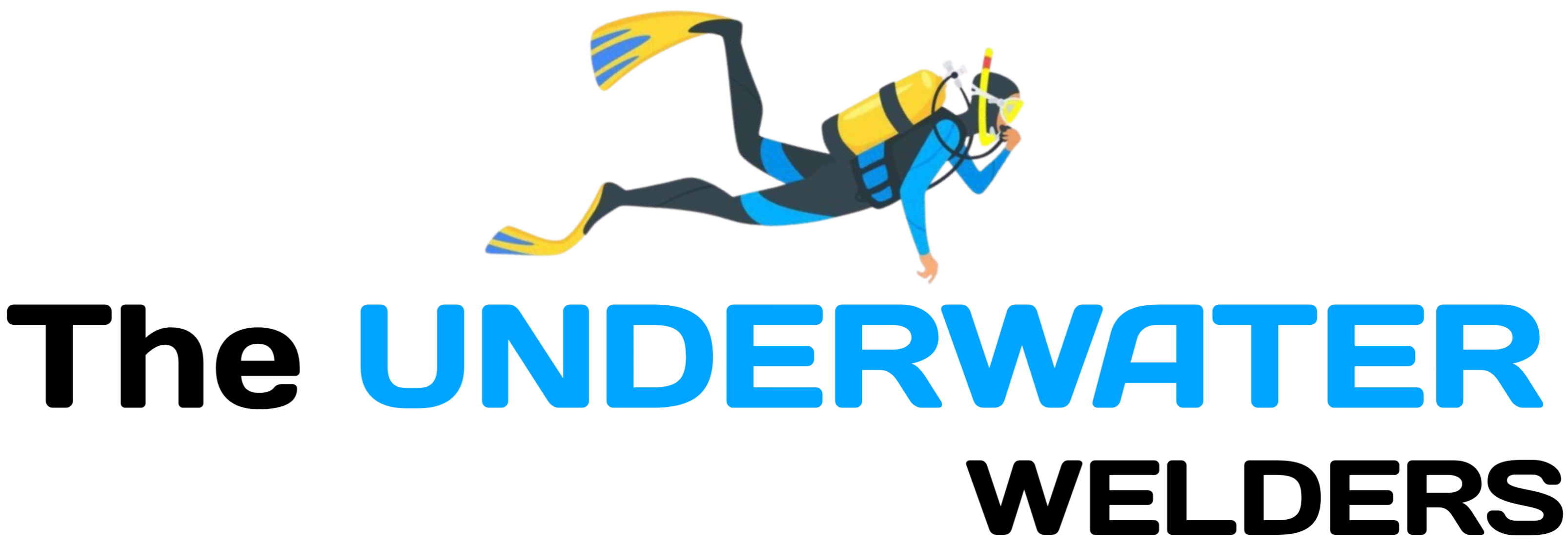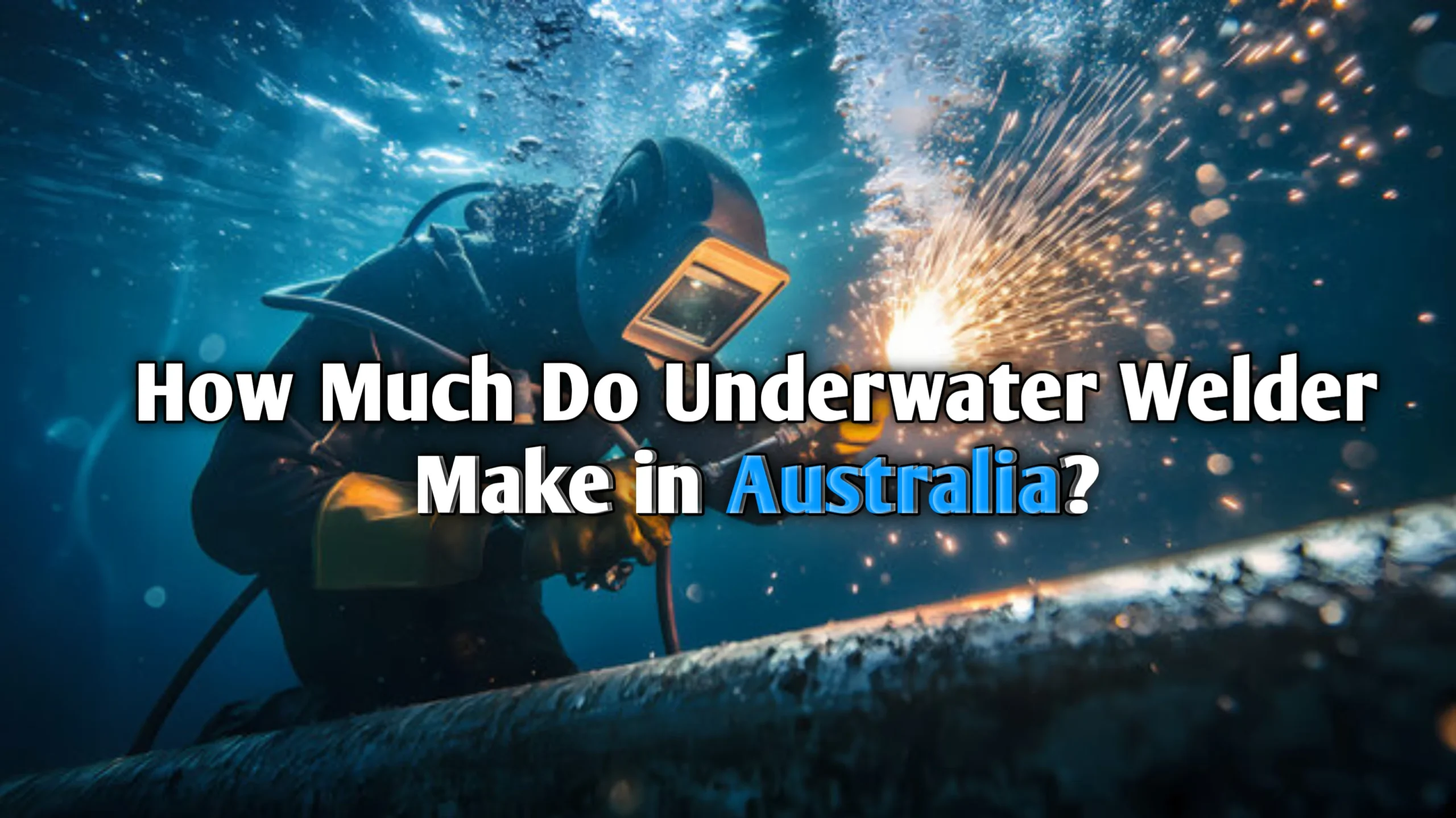Hey everyone,
I’ve been working as an underwater welder for a while now, and people often ask me:
“How much can you really make in Australia doing this job?”
Well, if you’re thinking about becoming an underwater welder or you’re just curious about the pay in Australia, I’m here to break it down for you — no confusing terms, just real talk based on what I know and see in the field.
Is Underwater Welding a Good Job in Australia?
Yes, underwater welding can be a great job in Australia — but it’s not easy. It takes proper training, diving certification, and hard work. You need to be comfortable in deep water, wear heavy gear, and work in different conditions. But the pay is good, especially if you’re skilled and experienced.
Average Underwater Welder Salary in Australia
The average underwater welder salary in Australia depends on your experience and where you work.
| Experience Level | Hourly Rate (AUD) | Weekly Pay (AUD) | Monthly Pay (AUD) | Annual Salary (AUD) |
|---|---|---|---|---|
| Entry-Level | $35 – $45 | $1,400 – $1,800 | $6,000 – $7,800 | $70,000 – $90,000 |
| Mid-Level (2–5 yrs) | $45 – $60 | $1,800 – $2,400 | $7,800 – $10,400 | $90,000 – $120,000 |
| Experienced (5+ yrs) | $60 – $75 | $2,400 – $3,000 | $10,400 – $13,000 | $120,000 – $150,000+ |
| Offshore Specialist | $70 – $85+ | $2,800 – $3,400+ | $12,000 – $14,800+ | $140,000 – $160,000+ |
These numbers are averages based on real job listings and industry data in Australia. Offshore jobs often include extra perks like free travel, meals, and accommodation — making the package even better.
What Affects the Salary of an Underwater Welder in Australia?
Several factors decide how much money you can make as an underwater welder in Australia. Here are the main ones:
1. Experience – The more years you’ve worked, the more you get paid. Beginners earn less, but your salary grows with time.
2. Certifications – Having the right diving and welding certificates helps you land better and higher-paying jobs.
3. Location – Offshore jobs (in the ocean) usually pay more than inland or port-area jobs because they are harder and riskier.
4. Danger Level – If the job involves deeper dives, strong currents, or tough environments, the pay often goes up.
5. Type of Work – Some jobs involve repairs, while others involve building new underwater structures. Emergency or urgent jobs may also pay more.
What Certifications Do You Need in Australia?
Before you start underwater welding in Australia, you need some important certifications. These prove you’re trained and ready for the job.
1. ADAS Commercial Diving Certificate – Usually ADAS Part 1, 2, or 3 depending on job type. (ADAS Australian Diver Accreditation Scheme)
2. Welding Qualifications – Like AS 1796 or equivalent; this shows you can weld properly and safely.
3. First Aid & CPR Training – Safety is a must, and many employers won’t hire without this.
4. Fitness to Dive – You must pass a medical exam to make sure you’re fit for underwater work.
Once you have these, you can apply for serious underwater welding jobs in Australia.
Top Paying Regions for Underwater Welders in Australia
Some regions in Australia pay more to underwater welders due to demand, remote locations, and the type of work involved. If you’re experienced and willing to travel, especially offshore, your salary can go well over AUD $150,000 per year.
| Region/State | Why It Pays Well |
|---|---|
| Western Australia (Perth, offshore rigs) | Offshore oil and gas industry — high risk means higher pay. |
| Northern Territory (Darwin) | Constant demand for port maintenance and shipyard work. |
| Queensland (Brisbane, coastal areas) | Coastal infrastructure, emergency repairs, and consistent job availability. |
| Offshore Territories (Bass Strait, Timor Sea) | Remote and risky jobs — pay the most due to location difficulty. |
| New South Wales (Sydney, Newcastle) | Busy ports and regular ship repair projects; offers steady, well-paying work. |
| Victoria (Melbourne, Geelong) | Marine and industrial infrastructure — solid pay, especially with experience. |
| South Australia (Port Adelaide) | Fewer openings, but occasional high-paying contracts for experienced welders. |
| Tasmania | Less frequent projects, but specialized underwater jobs offer competitive wages. |
Who Hires Underwater Welders in Australia?
You’ll find job opportunities with companies that do marine construction, oil and gas work, ship repairs, and offshore maintenance.
Some of the popular companies hiring underwater welders in Australia include:
- Subsea 7
- TechnipFMC
- Broadspectrum (Ventia)
- McDermott International
- Oceaneering
- Local contractors in Darwin, Perth, and Queensland
You can find these jobs on:
Is It Worth It?
Honestly, it depends on you. The money is good, but the job is tough. You work in cold water, wear heavy suits, and face risks like pressure changes, low visibility, or equipment failure. But if you love challenges, water, and don’t mind a bit of danger, it can be a rewarding career.
What Are Some Of The Structures That Underwater Welders May Work On?
My Final Thoughts
So, what’s the real underwater welder salary in Australia? It’s good — sometimes really good — but it’s not just about the money. You need to be skilled, trained, and brave. This job isn’t for everyone, but if it’s for you, Australia is a great place to do it.
If you’re planning to join this field, focus on learning, get certified, and always follow safety rules. The money will come with time and experience.
Stay safe — and weld strong!

